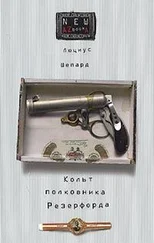And before long he fell asleep in the midst of this infinite torment contained within the belly of the fish in his dream, contained in turn within his skull, within the ramshackle frame house, within the gunshot-riddled spiritual realm of the Detroit ghetto, whose agonies became a fleeting instance of distress—the fluttering of an eyelid, the twitching of a nerve—within the dreamed-of peace of Buddha’s sleep.
* * *
The shooting gallery was located in the Jefferson-Chalmers district, the section of the ghetto most affected by the ‘67 riots. Hundreds of gutted houses still stood as memorials to that event, and between them—where once had stood other houses—lay vacant lots overgrown with weeds and stunted trees of heaven. The following afternoon, as he walked past the lot adjoining the shooting gallery, Buddha was struck by the sight of a charred sofa set among weeds at the center of the lot, and obeying an impulse, he walked over to it and sat down. It was the first day of fall weather. The air was crisp, the full moon pinned like a disfigured cameo of bone to a cloudless blue sky. In front of the sofa was a pile of ashes over which somebody had placed a grill; half a dozen scorched cans were scattered around it. Buddha studied the ashes, the grill, the cans, mesmerized by the pattern they formed. Sirens squealed in the distance, a metallic clanging seemed to be issuing from beyond the sky, and Buddha felt himself enthroned, the desireless king of a ruined world in which all desire had faltered.
He had been sitting for perhaps an hour when a teenage boy with a freckly complexion like Pete’s came running along the sidewalk. Dressed in jeans and a sweatshirt and lugging an immense ghetto blaster. The boy looked behind him, then sprinted across the lot toward Buddha and flung himself down behind the sofa. “You tell ’em I’m here,” he said breathlessly, “I’ll cut ya!” He waggled a switchblade in front of Buddha’s face. Buddha just kept staring at the toppled brick chimneys and vacated premises. A dragonfly wobbled up from the leaves and vanished into the sun dazzle of a piece of broken mirror canted against the ash heap.
Less than a minute later two black men ran past the lot. Spotting Buddha, one shouted, “See a kid come this way?” Buddha made no reply.
“Tell ’em I headed toward Cass,” the kid whispered urgently, but Buddha maintained his silence, his lack of concern.
“Y’hear me?” the man shouted.
“Tell ’em!” the boy whispered.
Buddha said nothing.
The two men conferred and after a second ran back in the direction from which they had come. “Damn, blood! You take some chances!” said the boy, and when Buddha gave no response, he added, “They come back, you just sit there like you done. Maybe they think you a dummy.” He switched on the ghetto blaster, and rap music leaked out, the volume too low for the words to be audible.
Buddha looked at the boy, and the boy grinned, his nervousness evident despite the mask of confidence.
“Ain’t this a fine box?” he said. “Fools leave it settin’ on the stoop, they deserve to get it took. “ He squinted as if trying to scry out Buddha’s hidden meaning. “Can’t you talk, man?”
“Nothin’ to say,” Buddha answered.
“That’s cool… Too much bullshit in the air, anyhow.”
The boy reminded Buddha of his younger self, and this disquieted him: he had the urge to offer advice, and he knew advice would be useless. The boy’s fate was spelled out by the anger lying dormant in the set of his mouth. Buddha pitied him, but pity—like love, like hate—was a violation of his policy of noninvolvement, an impediment of the emptiness to which he aspired. He got to his feet and headed for the sidewalk.
“Hey!” yelled the boy. “You tell them mothafuckas where I’m at, I’ll kill yo’ ass!”
Buddha kept walking.
“I mean it, man!” And as if in defiance, as if he needed some help to verbalize it, the boy turned up the ghetto blaster, and a gassed voice blared, “Don’t listen to the shuck and jive from Chairman Channel Twenty-Five…”
Buddha picked up his pace, and soon the voice mixed in with the faint sounds of traffic, distant shouts, other musics, absorbed into the troubled sea from which it had surfaced.
* * *
From the shooting gallery to Taboo’s apartment should have been about a twenty-minute walk, but that day—still troubled by his encounter with the boy—Buddha cut the time in half. He had learned that it was impossible to avoid involvement on his day off, impossible not to confront his past, and in Taboo he had found a means of making the experience tolerable, letting it be the exception that proved the rule. When he had first met Taboo seven years before, Taboo’s name had been Yancey; he had been eighteen, married to a pretty girl, and holding down a steady job at Pontiac Motors.
Three years later, when he had next run into him, Taboo had come out of the closet, was working as a psychic healer, curing neighborhood ladies of various minor complaints, and through hormone treatments had developed a small yet shapely pair of breasts, whose existence he hid from the world beneath loose-fitting clothes.
Buddha had caught a glimpse of Taboo’s breasts by accident, having once entered his bathroom while he was washing up, and after this chance revelation, Taboo had fixed upon him as a confidant, a circumstance that Buddha had welcomed—though he did not welcome Taboo’s sexual advances. He derived several benefits from the relationship. For one thing, Taboo’s specialty was curing warts, and Buddha had a problem with warts on his hands (one such had given him an excuse to visit that day); for another, Taboo—who dealt on the side—always had drugs on hand. But the most important benefit was that Taboo provided Buddha with an opportunity to show kindness to someone who brought to mind his dead wife. In their solitary moments together, Taboo would don a wig and a dress, transforming himself into the semblance of a beautiful young woman, and Buddha would try to persuade him to follow his inner directives and proceed with the final stage of his sex change. He would argue long and hard, claiming that Taboo’s magical powers would mature once he completed the transformation, telling Taboo stories of how wonderful his new life would be. But Taboo was deathly afraid of the surgeon’s knife, and no matter how forcefully Buddha argued, he refused to pay heed. Buddha knew there had to be an answer to Taboo’s problem, and sometimes he felt that answer was staring him in the face. But it never would come clear. He had the notion, though, that sooner or later the time would be right for answers.
It was a beautiful spring day in Taboo’s living room. The walls were painted to resemble a blue sky dappled with fluffy white clouds, and the floor was carpeted with artificial grass. In Taboo’s bedroom where he did his healing, it was a mystical night. The walls were figured with cabalistic signs and stars and a crescent moon, and the corner table was ebony, and the chairs upholstered in black velour. Black drapes hid the windows; a black satin quilt covered the bed. Muted radiance shone from the ceiling onto the corner table, and after he had fixed, it was there that Buddha sat soaking his wart in a crystal bowl filled with herb-steeped water, while Taboo sat beside him and muttered charms.
Taboo was not in drag because he was waiting for Johnny Wardell to show; but even so he exhibited a feminine beauty. The soft lighting applied sensual gleams to his chocolate skin and enhanced the delicacy of his high cheekbones and generous mouth and almond-shaped eyes. When he leaned forward to inspect Buddha’s wart, the tips of his breasts dimpled the fabric of his blousy shirt. Buddha could make out his magic: a disturbance like heat haze in the air around him.
Читать дальше






